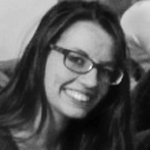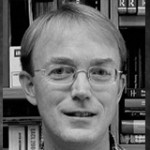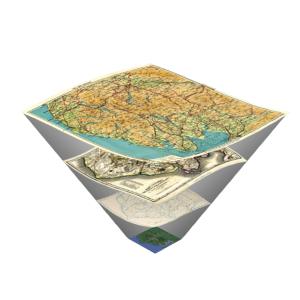| Professor Ian Gregory (PI) Lancaster University (Department of History)  I am a geographer by training and have spent much of my career working applying Geographical Information Systems (GIS) to historical research, a field that has become known as Historical GIS. Due to the growth of Digital Humanities, I have become particularly interested in using GIS with texts as well as the more traditional quantitative sources. This has been the subject of a number of successful grant applications include the European Research Council grant Spatial Humanities: Texts, GIS, Places project. For much more on my research see my personal website. I am a geographer by training and have spent much of my career working applying Geographical Information Systems (GIS) to historical research, a field that has become known as Historical GIS. Due to the growth of Digital Humanities, I have become particularly interested in using GIS with texts as well as the more traditional quantitative sources. This has been the subject of a number of successful grant applications include the European Research Council grant Spatial Humanities: Texts, GIS, Places project. For much more on my research see my personal website. |
| Professor Sally Bushell Lancaster University (Department of English & Creative Writing)  My larger research interests are in the field of British Romanticism with a particular interest in Wordsworth and the Lake District as well as in the form of the long poem and in critical exploration of poetic process. I am interested in interpreting the text in all its states (visual, material and verbal). My current research is on literary cartography and the mapping and reading of literary works for which a map appears alongside the text. My larger research interests are in the field of British Romanticism with a particular interest in Wordsworth and the Lake District as well as in the form of the long poem and in critical exploration of poetic process. I am interested in interpreting the text in all its states (visual, material and verbal). My current research is on literary cartography and the mapping and reading of literary works for which a map appears alongside the text. |
| Dr Paul Rayson Lancaster University (School of Computing and Communications)
|
| Dr Christopher Donaldson Lancaster University (Department of History)  I am Lecturer in Regional history at Lancaster. My work is primarily concerned with 18th- and 19th-century cultural and environmental history, with a specific emphasis on the history of the English Lake District. As part of my involvement with the ‘Geospatial Innovations’ project, I am currently completing a monograph entitled A Historical Atlas of Victorian Lakeland. I am also involved in research in the broader field of the Digital Humanities, and am I am co-editor of the Digital Forum for Journal of Victorian Culture. I am Lecturer in Regional history at Lancaster. My work is primarily concerned with 18th- and 19th-century cultural and environmental history, with a specific emphasis on the history of the English Lake District. As part of my involvement with the ‘Geospatial Innovations’ project, I am currently completing a monograph entitled A Historical Atlas of Victorian Lakeland. I am also involved in research in the broader field of the Digital Humanities, and am I am co-editor of the Digital Forum for Journal of Victorian Culture. |
| Dr Joanna Taylor Lancaster University (Department of History)  I am the Research Associate on ‘Geospatial Innovations’. I submitted my PhD, titled ‘Writing spaces: the Coleridge family’s agoraphobic poetics’, at Keele University in 2015. My research interests are in nineteenth century literature, particularly representations of and responses to space and place, literary cartography and issues of inheritance. I am the Research Associate on ‘Geospatial Innovations’. I submitted my PhD, titled ‘Writing spaces: the Coleridge family’s agoraphobic poetics’, at Keele University in 2015. My research interests are in nineteenth century literature, particularly representations of and responses to space and place, literary cartography and issues of inheritance. |
| Alexander Reinhold Lancaster University (Department of History/School of Computing and Communication  I am a PhD candidate in the ‘Geospatial Innovations’ project, with an aim to develop a prototype deep map that allows a range of user-groups to gain new understandings of the importance of space and place to Lake District heritage. My primary interests are in the use of computer applications in archaeology for the purpose of digital documentation of heritage sites and the dissemination of data to the public. My background is in the documentation of heritage sites with 3D laser scanning and photogrammetry, and the development of apps for museum exhibits and GIS applications for large datasets. I am a PhD candidate in the ‘Geospatial Innovations’ project, with an aim to develop a prototype deep map that allows a range of user-groups to gain new understandings of the importance of space and place to Lake District heritage. My primary interests are in the use of computer applications in archaeology for the purpose of digital documentation of heritage sites and the dissemination of data to the public. My background is in the documentation of heritage sites with 3D laser scanning and photogrammetry, and the development of apps for museum exhibits and GIS applications for large datasets. |
| Dr James Butler Lancaster University (Department of English & Creative Writing) I am a Research Assistant on the |
 I am a Reader in Computer Science at Lancaster University, UK and Director of the UCREL interdisciplinary research centre which carries out research in corpus linguistics and natural language processing (NLP). A long term focus of my work is the application of semantic-based NLP in extreme circumstances where language is noisy e.g. in historical, learner, speech, email, txt and other CMC varieties. My applied research is in the areas of online child protection, learner dictionaries, and text mining of historical corpora and annual financial reports. I am a co-investigator of the five-year ESRC Centre for Corpus Approaches to Social Science (CASS) which is designed to bring the corpus approach to bear on a range of social sciences.
I am a Reader in Computer Science at Lancaster University, UK and Director of the UCREL interdisciplinary research centre which carries out research in corpus linguistics and natural language processing (NLP). A long term focus of my work is the application of semantic-based NLP in extreme circumstances where language is noisy e.g. in historical, learner, speech, email, txt and other CMC varieties. My applied research is in the areas of online child protection, learner dictionaries, and text mining of historical corpora and annual financial reports. I am a co-investigator of the five-year ESRC Centre for Corpus Approaches to Social Science (CASS) which is designed to bring the corpus approach to bear on a range of social sciences. project, with a background in psycholinguistics – especially concerning name formation, development, and use. My work on the project revolves around the creation and implementation of a custom gazetteer, in order to track spatial reference in greater detail. My other work involves the Lakescraft Project, also at Lancaster University, alongside wider research into the benefits of clinical gaming application throughout society.
project, with a background in psycholinguistics – especially concerning name formation, development, and use. My work on the project revolves around the creation and implementation of a custom gazetteer, in order to track spatial reference in greater detail. My other work involves the Lakescraft Project, also at Lancaster University, alongside wider research into the benefits of clinical gaming application throughout society.